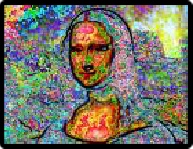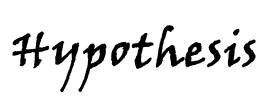
















NEXT
BACK
NEXT
BACK








Site Search


REALITY of INFORMATION
The philosophical history behind Enformationism dates back to Plato and Aristotle. Both concluded that the universe (as a dynamic, changing, living entity) could not have been self-
They did not conceive of the Prime Cause as a traditional anthropomorphic deity though, but simply as a logical necessity. Therefore, the Causer / Creator / Conceptor was assumed to be eternal and unchanging like a solid foundation to serve as an immovable object for the universe to push-
Aristotle used the term “energeia” (action) to describe the primal force that imparted momentum (energy of motion) to the physical universe. And his action principle was borrowed by modern scientists as their label for what we now call “energy”, which is the power to cause change. But the Greek usage also implied that the aboriginal Actor (logos*) was sentient in some sense. However, that imputation of consciousness was omitted by the pragmatic scientists, who had no need for the idealistic aspect of the hypothesis. As a result their mechanical definition of “Energy” as a “scalar physical quantity” contrasts with the phenomenal definition as an attribute of matter (the ability to do work) . That mysterious property (qualia) of matter turns out to be a metaphysical, mathematical abstraction for which they had no explanation other than it just is [11]. Energy is never observed as a physical thing unto itself, apart from matter–-
Plato’s elaborations on the Ultimate Reality, beyond what we know as physical reality, was called Idealism. In his dialogues he used the term “Forms” (eidos) when referring to the abstract, defining concept (idea) that served as the blueprint for all concrete, real things in the world. Consequently, his ontology (explanation of existence) was based on what we now call Information. 2500 years later the Enformationism ontology is an attempt to reconcile those ancient philosophical metaphors with the 21st century scientific evidence. ●
*Logos : Greek, meaning “word”, “concept”, “mind”, “reason”, “intent”.
It was assumed to be the divine animating principle of the Cosmos.

Ontology :the study of the nature of being, existence or reality in general


WIKIPEDIA : ONTOLOGY
Plato developed this distinction between true reality and illusion, in arguing that what is real are eternal and unchanging Forms or Ideas (a precursor to universals), of which things experienced in sensation are at best merely copies, and real only in so far as they copy (‘participate in’) such Forms.
Ontology as an explicit discipline was inaugurated by Aristotle, in his Metaphysics, as the study of that which is common to all things which exist, and of the categorisation of the diverse senses in which things can and do exist. What exists, in so far as Aristotle concludes, are a plurality of independently existing substances – roughly, physical objects – on which the existence of other things, such as qualities or relations, may depend; and of which substances consist both of a form (e.g. a shape, pattern, or organisation), and of a matter formed (Hylomorphism). Against Plato, who taught . . . the theory of forms, Aristotle holds that universals exist, these do not have an existence over and above the particular things which instantiate them.
NOTE : Enformationism is an attempt to reconcile Plato and Aristotle. The ultimate reality of universal metaphysical Forms is transformed into the proximate reality of particular physical Things by the creative process of “In-



ENERGY
~ Physics : a thermo-
~ Psychology : a psycho-
IDEAL FORM
The ancient Greek word for form was eidos, and this word was famously used in a technical philosophical sense by Plato (and later Aristotle) to denote the ideal identity or essence of something (see Theory of forms). "Eidos" can also be associated with thought, proposition or even concept.
—-
PLATONIC FORMS
Plato's Theory of Forms asserts that Forms (or Ideas), and not the material world of change known to us through sensation, possess the highest and most fundamental kind of reality. The Forms are the only true objects of study that can provide us with genuine knowledge.
—-